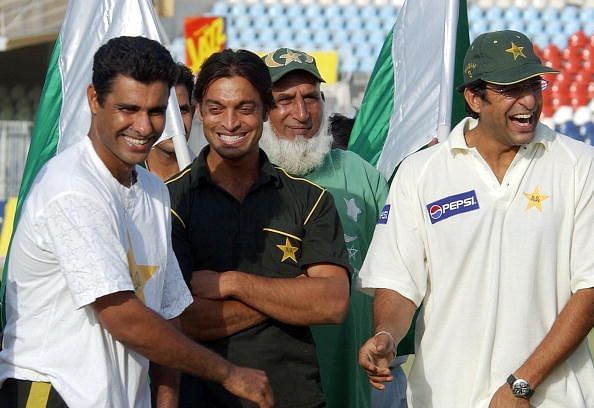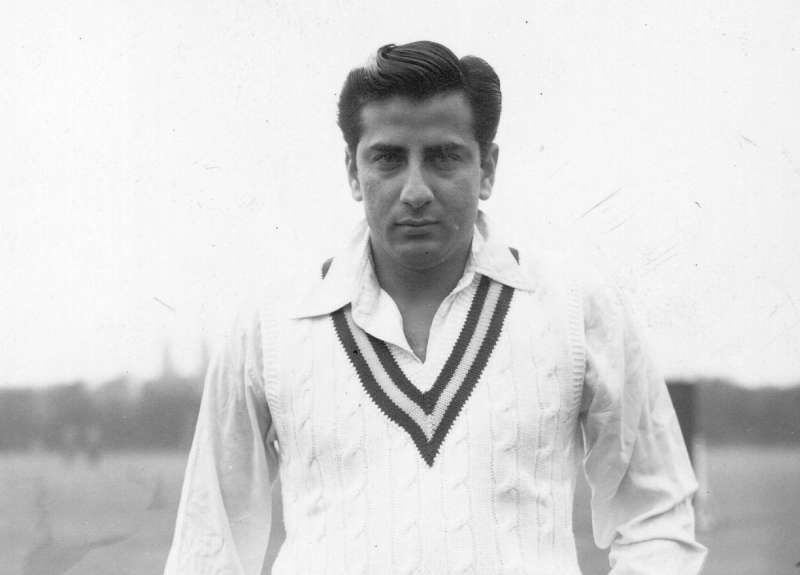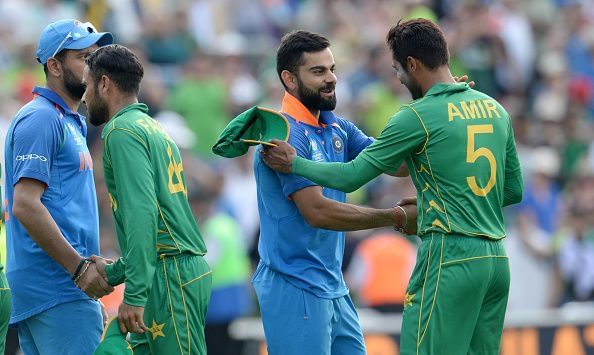
A bond like no other: An Indian's forbidden love affair with Pakistani cricket

Utter the words 'Pakistani cricket' within. Think of those flowing manes, cascading charisma and flamboyant fast bowlers charging from the crease even as the resplendent arena glows in approval. Think of batsmen with home-grown techniques scrapping hard to overturn the inevitable trademark collapse. Think of nervous fielders trying hard not to drop the ball.
To neutral aficionados of cricket, Pakistan are not just any team but a motley crew spawning myriad emotions which have to be lived and not examined. To those from the other side of the Radcliffe Line, they are much more than just the eternal nemesis. It may not be an exaggeration for one to take a cue from Jerry Maguire and exhort to the other, 'You complete me'.
In what could appear to be a convoluted version of Yin and Yang, India and Pakistan cannot be nonchalantly ascribed as just another omnipresent rivalry. Concealed beneath the puerile angst and an ostensible sense of resentment, there flows a melancholic connect usually experienced by estranged souls.
Howsoever one attempts to distort nature's fabric and denies the existence of the inner tinge, the unassuming public from both countries cannot prevent themselves from realising that they have much more in common than they could have ever imagined. As with any bond, much of the allure stems from the exotic component.
While India's luminous batting riches gain immense commendation from those across the border, Pakistan's succession of inimitable pacers conversely receive begrudging admiration from the other side of the fence.
From an Indian perspective, the likes of Imran Khan, Wasim Akram, Waqar Younis, Shoaib Akhtar and Mohammad Asif have elicited astonishment as well as reverence for their magical skills and larger-than-life personas. With due respect to the tireless fast bowlers who have rendered immeasurable service to the country, they pale in comparison to their Pakistani counterparts. The difference in class does not entirely stem from pace. It's all about the Jazba-e-Junoon, an intrinsically unique rush.
United by blood and spirit

The fanciful fantasy of a combined India-Pakistan XI is far too potent to ignore. An ethereal amalgamation of Indian batting and Pakistani pace bowling could have even toppled the likes of Australia and South Africa in their own backyards. Alas for the dastardly involvement of fate and religion.
When Fazal Mahmood bowled Pakistan to an unprecedented triumph against England at The Oval in 1954, he was not just representing the crescent moon and five-rayed star but also the aspirations of the entire subcontinent. The collective might of a significant portion of the world's population gained fruition even as colonial power lay defeated underneath the grips of free will.
Also Read: The first poster boy of Pakistan cricket - Fazal Mahmood
The flame that Fazal lit should have spread far and wide across the region. Instead, the fires of ignition were contained within his newfound land. One wonders if he may have envisaged the future. The indelible legacy that he left behind assumed the identity of Pakistani cricket. While the rest may offer yeoman support, the protagonist must always be the irresistible fast bowler.
The enduring tradition continues to stand the test of time. A classic vindication was on display during the 2017 edition of the Champions Trophy. Notwithstanding Sarfraz Ahmed's dynamic leadership and Fakhar Zaman's heroics in the latter stages of the tournament, the seamers breathed life into the team's campaign.
Bland pitches and burgeoning bats might have crippled most bowling attacks. But not Pakistan. Even as their counterparts struggled to make a mark with the white ball, the likes of Hasan Ali, Mohammad Amir and Junaid Khan stole the show through sheer persistence.
In an era where bat dominates ball, it is almost poetic that fast bowlers are at the forefront of Pakistan's recent resurgence in the limited-overs formats. Having been accustomed to overshadowing their arch-rivals in major clashes over the course of the last few years, the Men in Blue's unforeseen mauling in the final may have sent heavy jolts through the veins of Indian fans. When the dust settles and time heals those wounds, they may even begin to appreciate as well as acknowledge Pakistan's emotional surge from pillory.
Sport must prevail over political whims

When Amir ripped the heart out of India's batting juggernaut, the magic ingrained in the rivalry was unearthed in dramatic fashion. While lack of regular fixtures between the two teams may have skyrocketed the hype around the Champions Trophy final, the contrasting emotions of euphoria and dejection leave the mind yearning for more.
Reflective of the subcontinent's misplaced priorities, the embroiling legal battle between Pakistan Cricket Board and Board of Control for Cricket in India is playing out like a befitting farcical saga.
Swayed by monetary gains, PCB continues to circle around BCCI akin to a spurned paramour courting the object of his desire. The latter withholds for the exact reason. Meanwhile, for those countless patrons of the game who desperately crave for India and Pakistan to meet on the field rather than off it, the irony is not lost.
India's (read BCCI and/or government) stance to curtail bilateral ties with Pakistan reeks of hypocrisy. While they keep catering to the purposeless jingoism of a section of the populace, their holier-than-thou attitude disappears when multi-team tournaments enter the equation. The same players, who remain forbidden on normal occasions, were greeted with a red-carpet welcome at the Eden Gardens during the 2016 World T20.
The supposed custodians of cricket, who also happen to be connected to popular political parties, do not hesitate to besmirch the purity of cricket by permeating the sport with the brushes of opportunistic agendas.
It has been more than 70 years since the blood stains of partition were smeared on a land entrenched upon kinship. However, neither country appears to have learned any lesson from the grotesque manner in which countless lives were shed amidst contrived maelstrom.
Modern Urdu literature's preeminent torch-bearer Sir Muhammad 'Allama' Iqbal once exhorted, "Rise above sectional interests and private ambitions. Pass from matter to spirit. Matter is diversity; spirit is light, life and unity." The divided subcontinent's dichotomous icon could very well have been responding to a self-fulfilling prophecy that would eventually shackle the region's evolution. Fortunately or unfortunately (depending on whose side you are on), there does not appear to be any proverbial light at the end of what is shaping up to be a prolonged and murky tunnel.